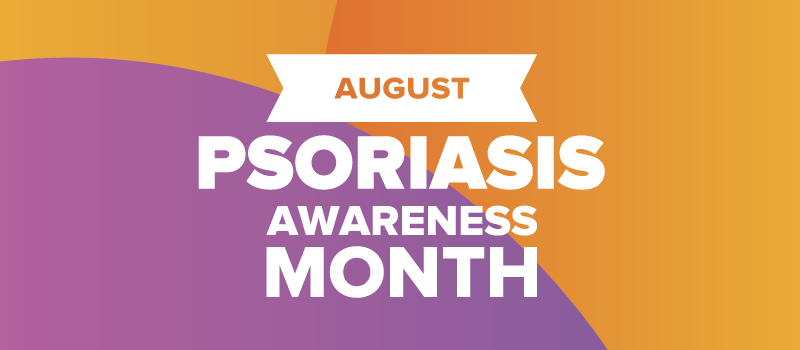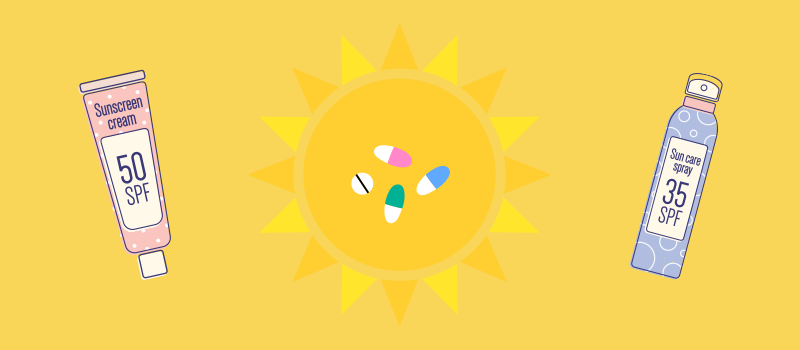What’s the Buzz
The Bee Healthy Blog
How to Manage Eczema Flare-ups in the Summer?

Eczema is a condition in which the skin becomes red, itchy, dry, cracked, and inflamed. It is a relatively common condition, affecting more than 30 million Americans or 10% of the population. The most common type of eczema is called atopic dermatitis. It occurs due to a problem with the immune system where the skin’s natural barrier against environmental irritants and allergens is weakened. There are also other types of eczema including dyshidrotic, nummular, neurodermatitis, and contact dermatitis.
People with eczema often find it challenging to manage their condition. One of the factors that affect the severity and frequency of an eczema flare is weather. Many people find that their eczema is worse in the winter when the air is cold and damp. But warm weather can also trigger eczema. If you suffer from eczema and find that the summer months are particularly difficult for you, there are various things you can do to manage your condition better.
Is eczema worse in hot weather?
In general, eczema flare-ups tend to occur more frequently in the winter. This is because it is cold and windy outdoors with dry, centrally heated air indoors. Movement between these two environments can trigger eczema flares. For many people, eczema symptoms tend to improve in the summertime when the skin is exposed to natural sunlight. However, every person with eczema has their own triggers, and for some people, hot weather can make atopic dermatitis symptoms worse.
Why is my eczema worse in the summer?
If you find that your eczema is worse in the summertime, this could be due to various reasons. Besides the heat itself which raises body temperature, there is increased sweating during the summer. Sweat contains various salts that can irritate broken or cracked skin in people with eczema. Moreover, when you are indoors during the summer, air conditioning can have a drying effect on sensitive skin, making you more prone to itching. Some people with eczema find that seasonal pollen triggers flares. Other potential summertime triggers include swimming in a chlorinated pool (the chlorine can irritate the skin).
Is it eczema or heat rash?
Heat rash occurs in the summer when the sweat glands get blocked and cannot cool the skin effectively. It causes a prickly, itchy sensation in the skin along with the appearance of red bumps or tiny blisters, which may resemble eczema.
Not sure whether you have a heat rash or eczema? The biggest clue that points to a heat rash is that the rash is brought on by hot, humid weather. Another clue is that a heat rash usually fades when you cool the skin with cold compresses or a cold shower. You can avoid heat rashes by wearing cool, comfortable clothes and avoiding excessive heat and humidity in the summer. Eczema, on the other hand, is a chronic (long-term) condition that tends to flare periodically.
How do I stop eczema flare-ups in summer?
You can do various things to manage your eczema flares when the weather is hot. Here are some tips that may help.
- Wear loose-fitting clothing in natural, breathable fabrics like cotton or linen. Avoid clothes with rough, scratchy fibers.
- Drink lots of water. Stay hydrated. Stay cool.
- Keep your lotions and gels in the fridge to help keep your skin cool.
- Shower and moisturize your skin after swimming.
- Use cooling towels or a cold washcloth to wipe away sweat periodically.
- Keep places like the bends of the elbows and backs of the knees dry (eczema tends to flare in these areas due to sweat).
- Take cold showers (hot water can have a drying effect on the skin).
- Avoid harsh soaps and cleansers.
- Pat your skin dry instead of rubbing it after a shower.
- Use a moisturizer every day to protect your skin. This acts as a barrier against environmental triggers.
- Avoid doing strenuous activities outdoors during the daytime. Stick to going outdoors in the early mornings and evenings when it’s cooler.
- Avoid rapid changes in temperature.
- Use sunscreen every day, preferably mineral sunscreen.
- Try to identify allergic triggers for your eczema and avoid them.
If lifestyle modifications and home treatments are not working and you are suffering from severe eczema flares in the summer season, it’s a good idea to consult a dermatologist. They can help you figure out allergens and give you tips on how best to protect your skin.
How do you treat atopic dermatitis in the summer?
There is no cure for eczema. However, doctors can prescribe various medications to try and keep you comfortable during the summer and other times of the year when you experience eczema flares. Some of the medications used to treat eczema or atopic dermatitis include:
- Topical or oral anti-itch medications to control itching.
- Topical or systemic corticosteroids to reduce inflammation and itching.
- Antibiotics, antivirals, and anti-fungals if the eczema is associated with a skin infection.
- Medications that suppress the immune system, reduce inflammation, and help prevent eczema flares.
- Prescription-strength moisturizers that act as an effective barrier to protect the skin.
- Phototherapy or light therapy to treat dermatitis.
Patients with eczema often find the warm temperatures in the summer to be a particularly difficult time to manage their condition. However, with the appropriate treatment, you should be able to get relief from your symptoms and enjoy the summer without your eczema interfering.
References:
1. https://nationaleczema.org/research/eczema-facts/
2. https://patient.info/news-and-features/how-the-seasons-affect-your-eczema











SOCIAL